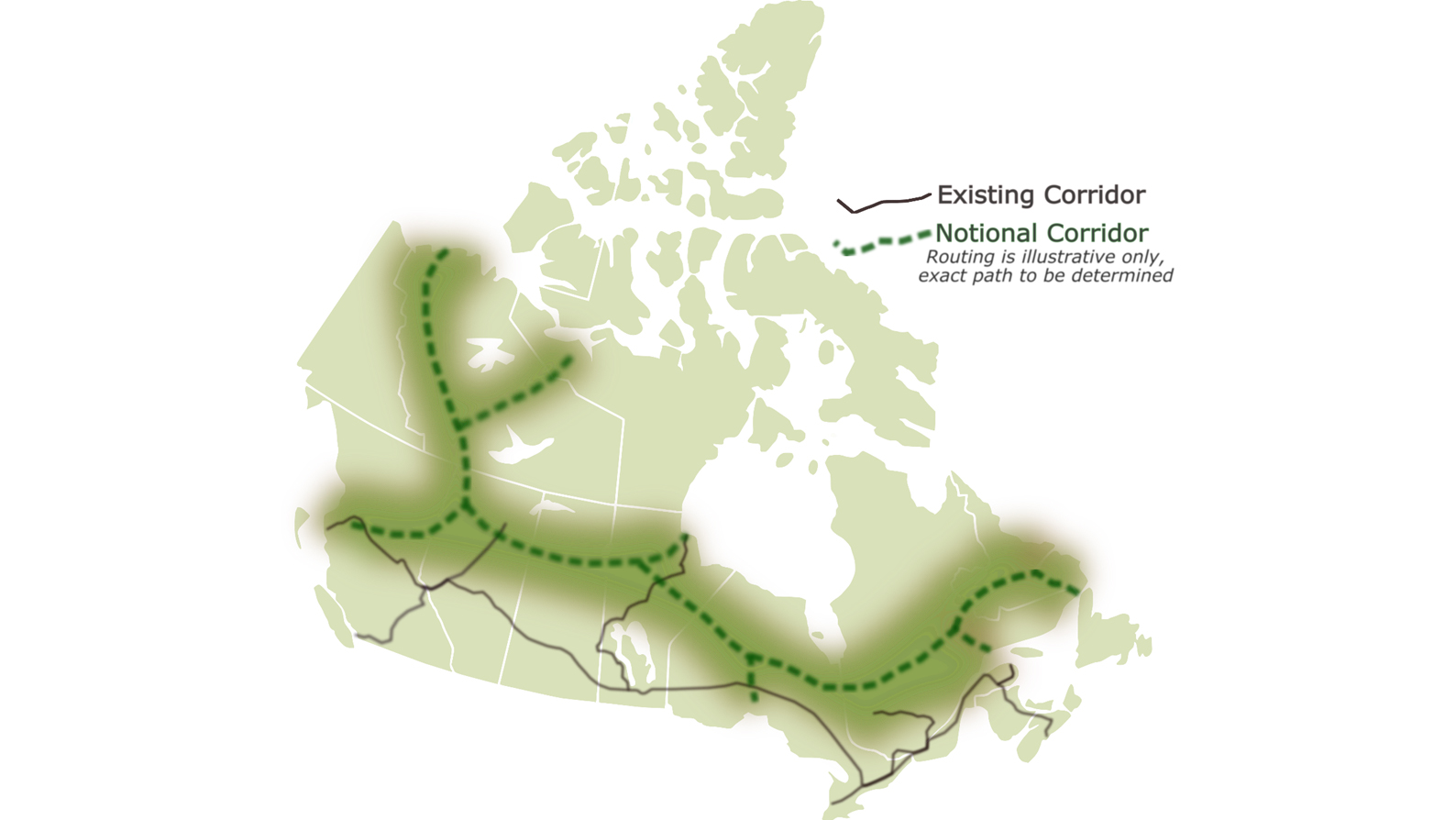Market access has been one of the most significant hurdles for some of Alberta’s core sectors to overcome. With a bright future for Alberta’s export industries, it’s a challenge that demands a long-term solution. The University of Calgary School of Public Policy is taking on this challenge, working towards a long-term solution to solve Canada’s market access, infrastructure, and internal trade challenges.
Researchers working in the Canadian Northern Corridor (CNC) research program are engaged in peer-reviewed research on many topics, all of which objectively generate the data needed for policymakers and industry to make decisions. In this article, we aim to bring our business community even deeper into the academic conversations about this project than to date, to help ensure that the data generating process captures the challenges currently being felt by our business community.
Connecting Canada
The proposed Canadian Northern Corridor would connect Canada from coast-to-coast-to-coast through a designated right-of-way for roads, rail, transmission, pipelines and communication. The CNC would connect to existing infrastructure and enable access to remote areas of Canada as well as multiple tidewater ports to facilitate international market access.
The Northern Corridor concept would include an accompanying policy, regulatory and governance structure to ensure business certainty and a clear path forward for project approvals and development.

What the CNC offers
Market access
Canada has a highly integrated economy and geographically is one the largest countries in the world. These two factors make it challenging for Canadians to move both goods and people across the country. Interprovincial trade, a key focus for businesses across the country, continues to impede our country’s economic strength, in part because of a lack of infrastructure to connect our goods to people across Canada. Improvements to infrastructure and interprovincial trade could generate up to $130 billion annually, representing an increase of seven percent of Canada’s annual GDP.
Alberta, as a landlocked and trade-exposed province, is in an exceptionally difficult position and has faced challenges with moving goods to Eastern Canada and foreign markets for decades. With considerable growth and activity in energy and agriculture, much of our economy relies on export-enabling infrastructure, including rail, pipelines and roads. In an increasingly interconnected world and with a growing population outside our borders, it will be critical for us to access new markets.
More certain regulatory framework
Our current system is comprised of a patchwork of federal, provincial and territorial regulations, which means each project must go through a unique and continually changing approval process. This creates a very uncertain environment for companies wanting to build critical infrastructure and often deters private investment. The cost of pipeline delays alone was estimated to be $15.6 billion in 2017 and industry has consistently called for a more stable and predictable regulatory environment.
Specific project benefits
Stronger economic outcomes
The CNC would facilitate access to lower costs to transport and export goods; job creation through infrastructure development; decreased cost of living and enhanced access to goods and services; and increased investment attraction due to certainty in regulatory systems.
Strengthen Canada’s position in the global economy
The Northern Corridor would support greater access to international export markets, leverage to negotiate contracts, and ability to switch markets based on global demand shifts. It would also improve project economics, thereby facilitating the viability of more development in diversified industries. Lastly, it will support infrastructure development in Canada’s north, helping secure Canada’s sovereignty.
Environmental protection
By having a dedicated right-of-way, land disturbance would be reduced. Additionally, this right-of-way would allow for centralized and integrated monitoring of environmental impact, enhancing data collection, emergency response, and adaptive management.
Improved standard of living for northern Canadians
The CNC would enhance access to physical and social infrastructure, including better access to health care, clean drinking water and internet. It would also support access to goods currently only accessible by winter roads, which are becoming less predictable and have shorter seasons due to climate change. Lastly, the CNC would result in improved connectivity in rural and remote northern Canadians.
Advancing reconciliation
Quality of life for Indigenous communities would improve due to increased access to health services and infrastructure, clean water, critical infrastructure, connectivity, and economic development opportunities. A single right-of-way would have fewer land infringements and disruptions and would facilitate Indigenous participation in the project governance structure.
Government support and involvement to date
Federal
The Northern Corridor project received early support from the Senate in 2018, which recommended the federal government fund the $5 million in research required to advance this project. The project has received $200,000 in support from the Social Sciences and Humanities Research Council of Canada, and some matched contributions from Western Economic Diversification.
Provincial
As of March 2021, the Government of Alberta has provided $1.65 million in funding for parts of the project’s research and program development. The Council of the Federation, representing Canada’s Premiers, publicly supported the project in 2019, stating:
“There is a need to increase certainty for investors and help get major infrastructure and transmission projects done in a timely fashion while minimizing environmental impacts, lowering the costs of environmental assessments, and maintaining high standards of Indigenous consultation and science-based assessments. These options should include further discussions on pan-Canadian economic corridors, both east-west and north-south, to increase productivity by distributing energy, communications, and economic potential currently locked in a single province or territory to other jurisdictions”
The Calgary Chamber has a strong relationship with the University of Calgary, and it’s critical that we help bring the views of business to research. If you have comments about the project or would like to learn more, please contact policy@calgarychamber.com. You can also visit the website, or read the full paper on how this project will achieve national prosperity.





